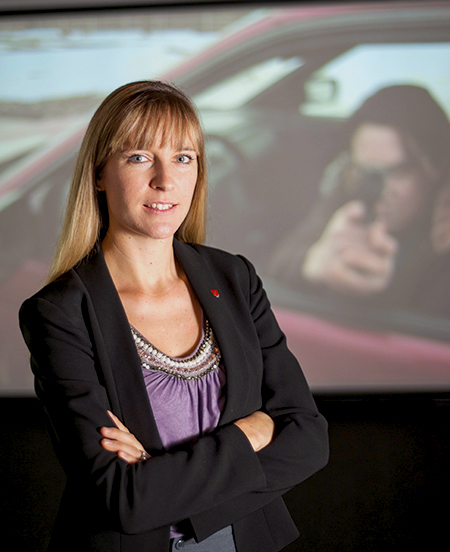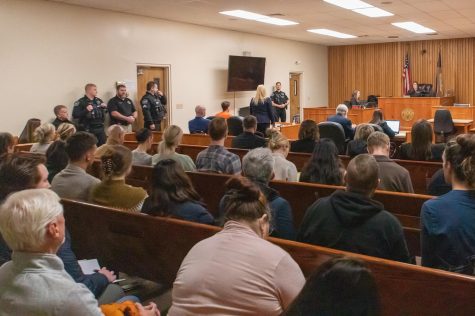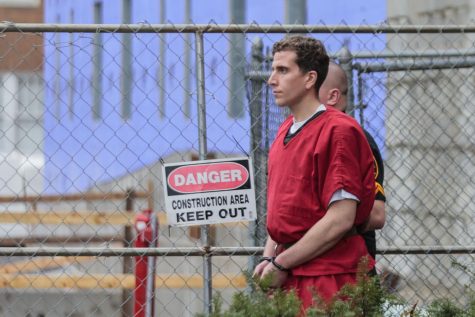WSU Spokane research developed police bias training
Pullman PD unsure if it will implement bias prevention training

Lois James of the WSU Spokane College of Nursing stands in front of a bias simulation.
October 13, 2017
Researchers at WSU Spokane have developed a training program to find and combat bias in police forces.
The research, led by Lois James of the WSU College of Nursing, resulted in a training program for police departments called “CBT Sim,” which stands for “Counter Bias Training Simulation.”
“It is a training platform,” James said, “that is being developed based on almost a decade of research done at our research lab here at WSU Spokane.”
James, who began as a research assistant before taking the helm in 2011, said the research and training tests for biases in general, but that race and how it affects an officer’s decision to shoot is the main focus.
The program recently received funding from the Department of Justice to train officers from the Cleveland Police Department. James and her team will train approximately 200 officers under the grant.
Pacific Northwest police departments, such as Astoria and Klamath Falls in Oregon, have already completed the training and gave positive feedback, James said.
The training lasts four hours, and involves five officers at a time. One officer is faced with a scenario on a life-sized screen, and is required to decide at which point to shoot the suspect, if necessary.
A self-reflection debriefing then occurs before the other officers offer their thoughts on the situation. Finally, a researcher joins the group and can replay the scenario to show instances where the officer may have exhibited bias.
“If an officer is responding to a scenario and the suspect is female,” James said, “and they don’t respond particularly quickly, it’s possible that it’s due to a pro-female bias or a belief that women are less of a threat to law enforcement than men.”
Before working with Cleveland PD, James and her team will gather data for about a year. The data will include citizen and inmate feedback, as well as body camera footage. They will then put officers through the training and gather data for a year to see if the training resolved any bias issues, James said.
Local police could benefit from the training offered by James and her team. Pullman Police Chief Gary Jenkins said he believes the program would help the department.
“I am hopeful it would be impactful and helpful to my staff, and help with our professionalism,” Jenkins said.
He has been in contact with James and her team, but scheduling issues have prevented them from going through the training. Both parties are busy in their respective field, he said.
“It’s just a matter of timing,” Jenkins said, “this is a busy time of year for us right now with home football games, and school is in session.”
Although he wants to see his department receive the implicit bias training, he said it’s not because of issues in the area.
“It’s one of those things where there’s nothing that has happened,” Jenkins said of potential bias in his department’s policing. “But we are always looking for ways to assure that we are providing the best service to our community in an unbiased way.”
Departments that want to participate in the training are required to pay a fee, as the research team has to bring all of the simulation equipment and staff to the department, James said. The fee is about $250 an officer.
The program could be repurposed for military use. There would be a few steps in repurposing the program and a beta group would be needed for testing, but James said she has had conversations with military officials on the possibility of future use.
Other plans include purchasing a storage unit or large truck to host the simulation, to increase the feelings of immersion and realism, as it currently takes place in a classroom or area provided by the department.
Training with Cleveland PD is scheduled to begin in 2019, though James said it could start earlier than that, depending on preliminary data collection.

















